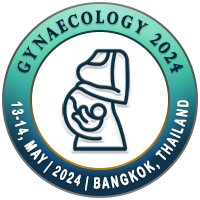
Taslima Akber Happy
Khwaja Yunus Ali Medical College, BangladeshTitle: Pattern of antenatal care received by working mothers and their pregnancy outcome
Abstract
Background: Nowadays, women are joining almost in every sector of workforce. In view of these changes it is necessary to find out whether the health of working mother or their progeny have been consequently compromised.
Objectives: To identify the utilization pattern of Antenatal Care (ANC) received by working mothers and their pregnancy outcome.
Materials & Methods: A cross-sectional study was conducted on 242 admitted working mothers with history of recent delivery in Dhaka Medical College Hospital (DMCH), Dhaka from January to December, 2013.
Results: Majority (61.2%) of the mothers was in the age group of 20-30 years with average income 4885.95 Tk. Two fifth (42.1%) of them were garment workers. Only one third (33.9%) mother received regular ANC. Majority (79.3) of them received their ANC from doctor and rest of them from Non-Government Organization (NGO) workers (11.6%), nurses (2.5%) and health assistants (1.7%). Mothers with history of irregular ANC showed almost 5 times more likely to develop anemia than the mothers with history of regular ANC (p < 0.001). Mean level of birth weight was highest among regularly ANC taking group found in one way ANOVA (F = 7.24, P<0.05).
Conclusion: As ANC has direct effect on mother’s health and pregnancy outcomes employers should have ANC policy for their women workers.
Biography
Taslima Akber Happy has completed her Master’s in Public Health (Reproductive and Child Health) from NIPSOM, Bangladesh in 2014. She is working as an Associate Professor at Department of Community Medicine & Public Health. As part of the department, she's attending the field survey with every MBBS batch for last 9 years and working on different research topics. She has 11 publications & that have been cited for 49 times. She has been serving as Member Secretary of the Institutional Ethics Review Board and Co-Focal Person of Medical Education Unit.

